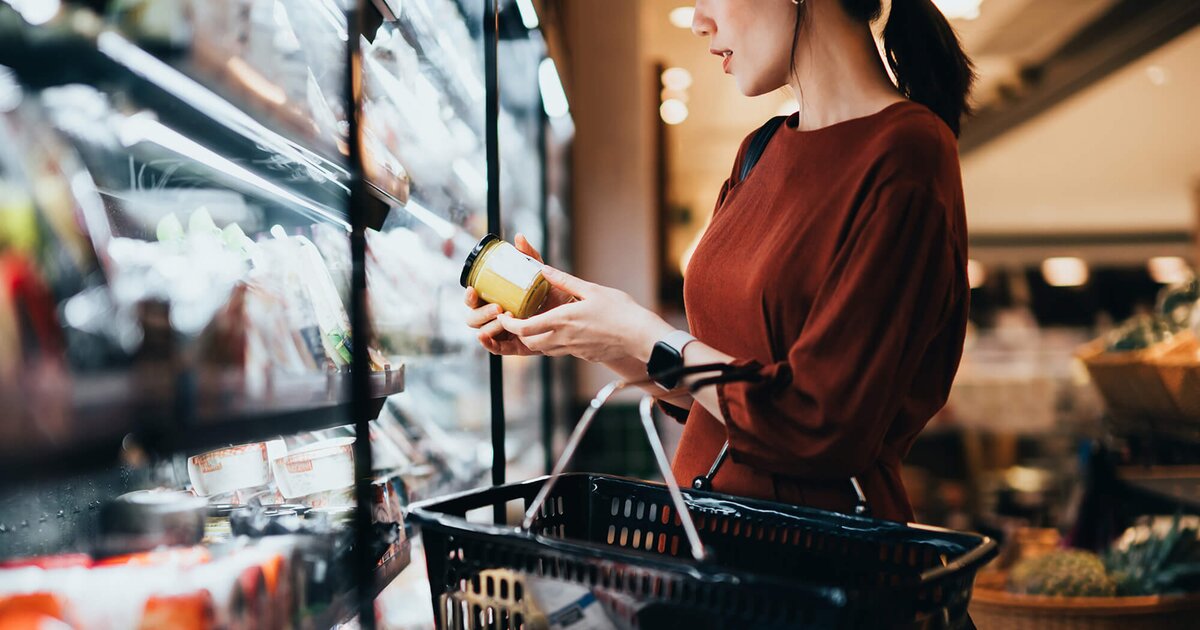

Be careful with these foods! They could be carcinogenic if consumed frequently!
© gettyimages.de | d3sign
Just as a healthy diet can reduce the risk of cancer, certain foods can increase the risk of certain types of cancer. Find out here which foods can be linked to the growth of dangerous cancer cells.
There are many different types of cancer that can be caused or at least promoted by a variety of possible causes. Although the complex disease process still needs further research, the current state of science already allows us to identify factors that Increase cancer risk.
Genetic predisposition and family history play a role. However, an even greater influence is external factors and your own lifestyle.
One of the most important lifestyle factors is diet. Just as a healthy diet can reduce the risk of cancer, certain foods can increase the risk of certain types of cancer.
Type 2 diabetes and obesity can lead to certain types of cancer, so foods that promote these two diseases can themselves be linked to cancer. Other foods contain so-called Carcinogensthat can cause cancer. Whether these carcinogens lead to cancer depends on the genetic predisposition of the person and on the amount and duration that the body is exposed to the pollutants.
1. Meat
All types of meat that have been preserved by smoking, salting, curing or preserving increase the risk of cancer. In addition to processed meat, Red meat more dangerous than white meat.
The manufacturing processes of processed meat can be carcinogenic. For example, curing meat with nitrite can produce carcinogenic N-nitroso compounds, or smoking meat can produce carcinogenic polycyclic hydrocarbons (PAHs).
Accordingly processed meat is an important risk factor for colon and stomach cancer, but is also associated with an increased risk of breast cancer.
2. Fried and deep-fried foods
When starchy foods are cooked at high temperatures, a compound called acrylamide is created. This can happen when frying, baking, roasting and toasting. Fried, starchy foods contain particularly high levels of acrylamide. This includes fried potato products such as French fries and potato chips. Acrylamide is classified as a probable carcinogen.
In addition, fried foods increase the risk of type 2 diabetes and obesity and promote oxidative stress and inflammation, which further increase the risk of cancer.
3. Overcooked food
Overcooking food, especially meat, can produce carcinogenic substances. When cooking meat, the high heat creates carcinogenic PAHs and heterocyclic amines (HCAs). Cooking methods such as grilling and frying in a pan in particular increase the likelihood of carcinogenic substances being released. Healthier and gentler cooking methods include poaching, pressure or steam cooking, baking or roasting at low temperatures, and slow cooking in a pot or slow cooker.
4. Dairy products
There are studies that indicate that dairy products can increase the risk of prostate cancer. Milk, cheese, yogurt, etc. increase the level of insulin-like IGF-1, which can increase the production of prostate cancer cells.
5. Sugar and refined carbohydrates
Foods that contain sugar and refined carbohydrates can indirectly increase the risk of cancer. Examples of dangerous foods include sugary drinks, white flour baked goods, white pasta, white rice, sugary muesli and cereals. These can increase the risk of type 2 diabetes and obesity, which in turn leads to inflammation and oxidative stress and promotes certain types of cancer. Type 2 diabetes has been shown to be associated with a high risk of ovarian, breast and uterine cancer, as well as bladder and gastrointestinal cancer. In addition, sugar and refined carbohydrates lead to high blood sugar levels, which is a risk factor for colon cancer.
Healthier alternatives include whole grain bread, whole grain pasta, brown rice and oats.
6. Alcohol
The liver breaks down alcohol into acetaldehyde, a carcinogenic compound.
Studies show that acetaldehyde promotes DNA damage and oxidative stress. It also impairs immune function and makes it harder for the body to fight precancerous and cancer cells.
In women, alcohol increases the level of estrogen in the body, which leads to an increased risk of breast cancer. It also promotes cancers of the oral cavity, throat, esophagus, liver, larynx and colon.
Scientific research has shown that certain foods contain beneficial ingredients that can also reduce the risk of cancer. These include fresh fruits and vegetables in particular, as they provide the body with antioxidants that protect cells from oxidative stress and DNA damage. Nuts, on the other hand, help reduce inflammation and the associated risk of cancer. Beans are rich in fiber, which reduces the risk of colon cancer. Whole grains such as quinoa and brown rice are also rich in fiber and antioxidants. Fish also provides healthy fats called omega-3 fatty acids, which reduce inflammation.
Anyone suffering from cancer should not be alone and, above all, they should receive the best possible information and support. That is why YES!CON has been running for three years – it is Germany’s largest cancer convention.
The event has now become the largest forum initiated by those affected to exchange information on everything to do with cancer. People suffering from cancer and of course their relatives can find information, network and get their questions answered here.
The program of this year’s convention features very exciting, interesting panels with experts. For example:
EXPLAINING CANCER TO CHILDREN
04.05.2024 – 12.15 p.m. LIVESTREAM 2
How do you talk to your children about your own illness, chances of recovery and maybe even death? How can you trust them to deal with the flood of information? How do you give children support in these challenging times? And what opportunities do children and young people actually have to support and help each other?
Many other important topics will be discussed at the YES!CON on May 4 and 5, 2024 in Berlin.
Be there: Either for free in the livestream – also here on myself – or for free on site in Berlin, you can register here.
https://www.prostata-hilfe-deutschland.de/prostata-news/prostatakrebs-risiko-milch
https://www.krebsinformationsdienst.de/vorbeugung/risiken/alkohol.php#:~:text=Alkoholkonsum%20ist%20oft%20mit%20weiteren,Konsumsumvon%20Alkohol%20zur%C3%BCckzuf%C3%BChren%20waren.
https://www2.mrc-lmb.cam.ac.uk/uncovering-alcohol-derived-metabolites-damage-genome-stem-cells/
https://www.diabinfo.de/leben/folgeerkrankungen/krebs

